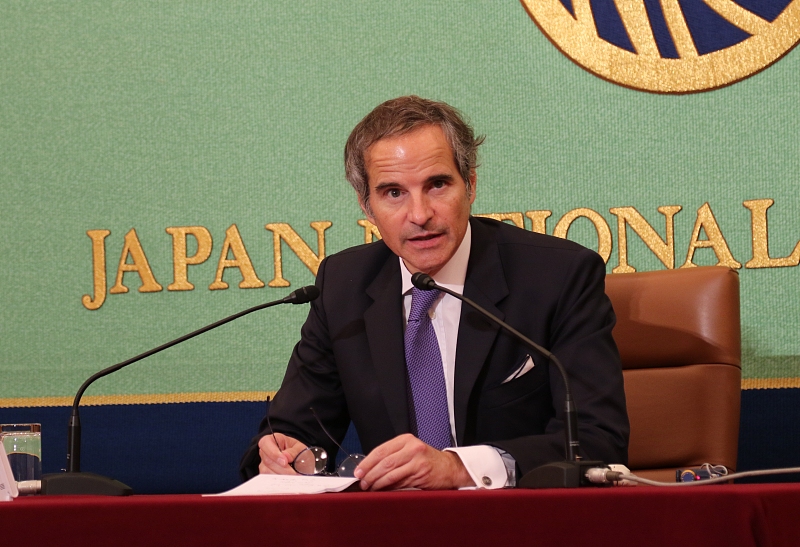
Rafael Mariano Grossi, Director General of the International Atomic Energy Agency attends a press conference in Tokyo, Japan, July 4, 2023. /CFP
Rafael Mariano Grossi, Director General of the International Atomic Energy Agency attends a press conference in Tokyo, Japan, July 4, 2023. /CFP
The International Atomic Energy Agency (IAEA) on Tuesday presented the comprehensive findings of its safety review of Japan's plan to release "treated water" from the Fukushima Daiichi nuclear power plant into the sea to Japanese Prime Minister Fumio Kishida.
IAEA has concluded that Japan's plans to release "treated water" stored at the power plant into the sea are consistent with IAEA safety standards, and the discharges of the "treated water" would have a negligible radiological impact on people and the environment, IAEA Director General Rafael Mariano Grossi said in a foreword of the report.
But Rafael Grossi noted that IAEA's safety review will continue during the whole discharge process, and the agency will also maintain a constant on-site presence and provide "real-time online monitoring" on its website from the emission facilities.
"This will ensure the relevant international safety standards continue to be applied throughout the decades-long process laid out by the Government of Japan and TEPCO," Rafael Grossi added.
"Japan has limited the mandate of the IAEA task force from the very beginning, and the agency is not authorized to evaluate other options than the discharge into the ocean," Chinese Foreign Ministry spokesperson Mao Ning said earlier on Tuesday before the report was published at a regular press conference.
"In this case, the IAEA report cannot prove the legitimacy and legality of Japan's ocean discharge plan, nor can it absolve Japan of its moral responsibility and obligations under international law," the spokesperson noted.
Despite ongoing opposition from within the country and abroad, Japan has been rushing to carry out its plan to dump radioactive wastewater into the Pacific Ocean, causing growing anger and stoking fears among the global community.
Japan's Chief Cabinet Secretary Hirokazu Matsuno said on Monday that the country will not change its plan to discharge Fukushima nuclear-contaminated water in the summer, local media outlet Jiji Press reported.